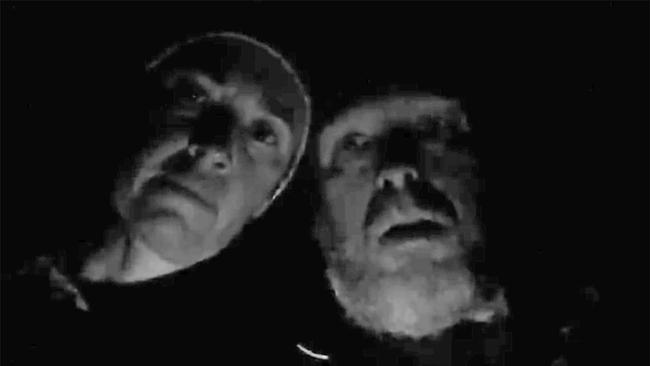Explained: Legal powers, beliefs and dangers of sovereign citizens
The sovereign citizen “movement” is back in the spotlight following some high-profile run-ins with police. This is what you need to know.
QLD News
Don't miss out on the headlines from QLD News. Followed categories will be added to My News.
The sovereign citizen “movement” could snowball further if not handled correctly, according to legal and social identity experts.
Despite recent media attention, not all sovereign citizens are harmful or dangerous.
Many simply believe they are not bound by Australian law, whether that involves creating a new currency, or sharing the belief that the entire government system and rule of law is a hoax.
Others enjoy filming themselves testing or breaking the law, with a recent rise in videos of sovereign citizens attempting to challenge the authority of police officers.
There has also been a startling number of sovereign citizens flocking to online forums or chatrooms to share their ideologies or other “related” conspiracy theories.
Simply put, sovereign citizens deny the authority of the Australian legal jurisdiction, theoretically placing themselves outside the Australian state.
But do they hold any legal ground and how does one speak to friends or family members who share the sovereign citizen ideology?
We talked to experts to find out exactly how sovereign citizens operate and what to do if you find yourself in disagreement with them.

What is a sovereign citizen?
Professor Graeme Orr of the Queensland University School of Law said those drawn to the sovereign citizen ideology could be divided into two types: anti-government or constitution deniers and grifters.
He said the informal movement was fascinating in thinking, with one side claiming humans were born as “godlike” individuals instead of community members bound by national systems and the others simply trying to avoid paying for things like car registration.
“There are folk who go down rabbit-holes, and think they’ve found some big gap in the authority of the Australian government or constitution, and there are grifters trying to avoid abiding by everyday laws like paying tax, car rego or police directions,” he said.
“The grifters get most attention though, as they film themselves play-acting “law,” often by mimicking the folk idea that law is just technical formalities, for example, thinking they can renounce their legal name to avoid the law.
“While sovereign citizen claims are contorted, they boil down to: Why should the law apply to me and why can’t I pick and choose the rules that apply to me?”
Mr Orr said while sovereign citizen ideology was traditionally associated with right wing libertarians, something had changed “probably in the last decade or so.”
“There’s a history to all this, but I think it’s ramped up in the last couple of years with Covid and the last decade with the kind of Americanisation of claims about rights and individuals and freedom,” he said.
“Particularly with people like Trump, right wingers have gone the other way and it’s not just about rejecting the state... it’s become a culture very much based upon picking and choosing, like shopping online.”

Do sovereign citizens hold any legal powers under Australian law?
According to Kieran Hardy from Griffith’s Criminology Institute, sovereign citizens usually self identify by using phrases such as, “I’m a private citizen,” “I’m not subject to that,” or “I’m a sovereign individual.”
Despite this, sovereign citizens declaration holds absolutely no legal basis in any Australian court.
“Some sovereign citizens issue their own ID cards, and they see themselves as kind of subject to their own kind of legal system, or they might not acknowledge a police officer,” Mr Hardy said.
“But there's absolutely no chance of success in an Australian courtroom. I think the High Court describes the chances of arguing that they’re not subject to Australian law is manifestly hopeless.”
Mr Orr said sovereign citizens had “cottoned on” to an American-style rejection of the authority of government and law, with the general theme of “I get to define my rights.”
He said while it was one thing to roll the window up to a police officer, it was a whole other thing to attempt to argue the ideology in court.
“I remember sitting in the Federal Court 34 years ago, one repeat litigant threw a $200 gold coin at the judge I worked for,” Mr Orr said.
“That fellow genuinely believed the paper money system was unlawful.
“Law is not a market where you buy into rules that suit you, even the money to do that relies upon a network of rules that trace to the Reserve Bank.
“Until an existing legal order is overturned by aliens, invaders or revolutionaries, it’s binding. We can't just pick and reject bits of it.”

Are sovereign citizens dangerous?
Most sovereign citizens are regarded as harmless and can be placed into two categories, disruptive or nondisruptive.
Mr Hardy said it was important to note that democratic law was meant to be challenged similar to government policy.
“You can argue that say for example, the law is unconstitutional or you can argue that you didn't break the law or various kinds of other ways of phrasing the argument to say that penalty does not apply to you or that law is not valid, and so on.
“It should be in a democracy that you should be able to challenge the law and you should be able to be an activist and protest against government policy that you disagree with.
“The distinction is between how disruptive are the people being … say someone who’s published his own currency, that’s viewed as a bit more of a quirk providing he’s not harming anyone. It’s not going to do anything to society.
“But if the police pulled me over, and I don’t have number plates, and I have my own form of ID and I started an argument, well, then that just becomes disruptive.”
While disruptive sovereign citizens seemed to be on the rise, both Mr Hardy and Dr Mols said not all should be considered extremists.
“You don’t want to start getting into a thing where anybody who is a sovereign citizen starts getting portrayed in an extremist way or that they could be the next terrorist.
“Somebody's childhood background, social influences, connections to extremist groups, what they’re drawn to online, it tends to be quite specific groups that drive a lot of extremist stuff.
I've seen a lot of people kind of say what ASIO says that, you know, 50% of the caseload is now right wing extremism and conspiracy thinking and then like we’re lumping everybody who might believe in the sovereign citizen idea within that basket.
We have to be a bit careful by calling an extremism right because it can also make it more attractive. By calling it extremism, people might identify as extremists and think they need to be more extremist things.

How to respond to sovereign citizens
All three experts agree that aggressive or defensive action against sovereign citizens would simply reinforce their views that the state is oppressive.
Mr Hardy said providing people with a voice and opportunity to let their views be heard without ridicule was the most likely effective way to speak with sovereign citizens, while Dr Mols said finding common ground was the best way to approach hot topics during conversation.
“This is what a lot of people get wrong, they rush to the argument door” Dr Mols said.
“One thing that I always tell people when they’re dealing with people in their family or friendship group is to you won’t persuade them unless you empathise unless you start trying to step in their shoes to some extent.
“That’s maybe dangerous for some people. But also to tell them no, you’re not crazy, there is corruption, there are scandals, there are paedophile networks, but that doesn’t mean I think your sense of everyone being in that is just a little bit unwarranted.”
More Coverage
Originally published as Explained: Legal powers, beliefs and dangers of sovereign citizens




